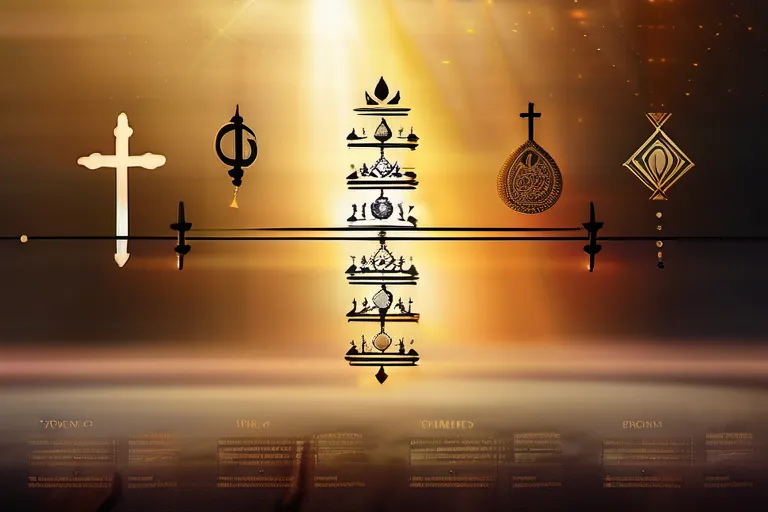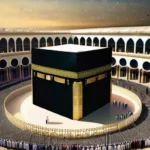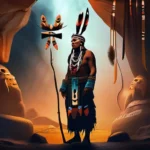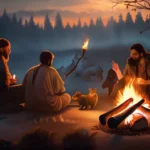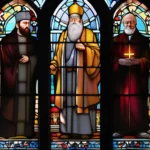Explore the roots and evolution of religious beliefs across cultures and time.
Delve into the fascinating world of religion, tracing its origins from ancient times to modern-day practices. This article offers a comprehensive exploration of the historical, cultural, and anthropological aspects of religion.
The Emergence of Religious Beliefs
Have you ever wondered about the origins of religion? How did people start worshipping deities, performing rituals, and building temples? The journey back to these early practices is like retracing human history itself. Imagine a world where every natural phenomenon was seen as a sign, a gift from supernatural forces—rain, thunder, lightning, even the cycle of life and death.
In the beginning, humans often turned to nature for answers and solace. The ancient Egyptians worshipped numerous gods, each representing different elements of their lives: Ra the sun god, Isis the mother goddess, Osiris the god of the afterlife. This belief system was not just a series of rituals but a way of life, woven into every aspect of Egyptian society.
Similarly, in Mesopotamia, the Sumerians also developed a complex pantheon of gods who controlled natural elements and human affairs. The Temple of Ur, one of their most significant structures, was not just a place of worship but a central hub where kings and priests made offerings to ensure prosperity and order.
These early religious practices were more than just cultural expressions; they were essential for survival. By attributing both blessings and misfortunes to divine will, communities could unite under a shared belief system that helped them cope with the uncertainties of life. These rituals and myths acted as a social glue, binding people together in a common purpose.
The evolution from these early practices to more structured religions can be seen as a gradual process where beliefs became codified into texts and doctrines. However, at their core, they all stemmed from a need for understanding and connection, a way for humans to navigate the complex and often unpredictable world around them.
Religion in Ancient Civilizations
The origins of religion are deeply intertwined with the ancient civilizations that laid the foundation for much of our modern understanding and practice. In Egypt, where pharaohs were often considered divine rulers, religion was not just a personal belief but a societal institution that structured daily life. Imagine for a moment, the grand pyramids as towering temples to gods, their every detail meticulously planned to honor the heavens above. How did such a complex system of beliefs evolve? Was it merely about power and control, or were there deeper spiritual needs driving these ancient Egyptians?
In Mesopotamia, the birthplace of some of humanity’s earliest written records, religion played a crucial role in governance and social order. The code of Hammurabi, one of the first known sets of laws, was closely intertwined with religious principles. Here, you can almost hear the echoes of the gods dictating human behavior through the king who acted as their earthly representative. What were the motivations behind enshrining divine law? Was it to create a just society or to legitimize authority?
In India, the Vedic period brought forth a rich tapestry of religious texts and practices that continue to influence spiritual thought today. The Rigveda, one of the oldest sacred texts, offers insights into ancient rituals and beliefs. Consider how these early texts shaped the understanding of the divine in everyday life. Were they meant as guides for living or were they more about understanding the mysteries of existence? The interplay between nature worship and abstract philosophical concepts hints at a profound curiosity about the universe that has resonated through centuries.
Each civilization’s religion reflects its unique context, from the pharaonic mystique of Egypt to the legalistic precision of Mesopotamia and the introspective philosophies of India. These early religious practices laid the groundwork for the complex belief systems we know today, blending the practical needs of governance with the spiritual quest for meaning.
The Spread of Monotheistic Religions
The spread of monotheistic religions like Judaism, Christianity, and Islam can be likened to the branching out of a mighty oak tree, each branch representing a unique path but all rooted in the same ancient soil. How did these faiths take root and flourish across different continents and cultures? To understand this, we must delve into their origins and the environments they grew in.
Consider Judaism as the trunk from which Christianity and Islam later branched out. The Hebrew Bible, or Tanakh, serves as a foundation for both religions, emphasizing monotheism and the covenant between God and His people. But it wasn’t until Jesus Christ came that Christianity began to diverge significantly, introducing concepts of sacrifice, atonement, and salvation through faith.
Islam, with its declaration of ‘There is no god but Allah, and Muhammad is his messenger,’ emerged in the 7th century CE. It synthesized elements from Judaism and Christianity while emphasizing strict monotheism, known as Tawhid. This new religion quickly spread through trade routes and conquests, becoming a dominant force in the Middle East and beyond.
The early Christian Church faced persecution before gaining prominence under Emperor Constantine with the Edict of Milan in 313 CE. From then on, it became the state religion of the Roman Empire, influencing art, architecture, and governance profoundly. Its spread was accelerated by missionaries who traveled far and wide, often converting entire communities.
Islam’s rapid expansion under the banner of Rashidun caliphs in the 7th century saw it conquer vast territories from Spain to India. The Umayyad Caliphate built grand mosques like the Al-Aqsa Mosque, symbolizing its spiritual and political power.
The spread of these monotheistic religions wasn’t just about conversion; it was a cultural and ideological shift that transformed societies in profound ways. They introduced new ethical codes, legal systems, and philosophies that continue to influence modern-day thought.
As we explore the spread of Judaism, Christianity, and Islam, we see not only the power of belief but also the complex interactions between religion, politics, and culture. Each step on their journey was marked by struggle, adaptation, and transformation – much like the branches of a tree reaching towards the sun.
Religion in Indigenous Cultures
Religion has been an integral part of human history, with its roots deeply embedded in the very soil from which our ancestors emerged. In the vast tapestry of cultural and social development, indigenous cultures have woven their own unique threads of spirituality that often reflect the natural world around them.
Imagine a rainforest, teeming with life and vibrant colors—this is not so different from the rich, diverse religious practices found in indigenous communities. Each tribe or community has its own set of beliefs, rituals, and spiritual practices that are closely tied to their environment and way of life. For instance, many indigenous cultures believe in multiple spirits and deities who govern various aspects of nature, such as the weather, rivers, and animals.
These spiritual practices often involve ceremonies, dances, and offerings that aim to maintain harmony with these natural forces. By understanding the significance of these rituals, we can gain a deeper appreciation for how deeply interconnected indigenous peoples are with their environment. It’s almost like they have a living library of knowledge passed down through generations, all stored in nature itself.
The religious practices of indigenous cultures often serve multiple purposes—such as healing, ensuring a good harvest, and maintaining social cohesion. They also play a crucial role in preserving cultural identity and traditions. When we explore these practices, we realize that religion isn’t just about belief; it’s an encompassing way of life that shapes every aspect of their existence.
As we delve into the origins of religion through indigenous cultures, one cannot help but wonder how much our own modern understanding of spirituality might benefit from such holistic approaches. Perhaps there is something to be learned from these ancient practices that can help us navigate the complex challenges of today’s world, where environmental sustainability and community well-being are increasingly critical.
The Role of Religion in Modern Society
How does religion shape our modern world? In a society where technology and science often overshadow traditional beliefs, it’s easy to overlook the profound impact that religious practices still have on politics, culture, and personal identity.
Consider the role of religion in politics. Is it a force for unity or division? In many nations, religion plays a pivotal role in shaping political ideologies and agendas. Theocracies where religious doctrines directly govern society are just one extreme end of this spectrum. In democratic societies, religious leaders can wield significant influence through their moral authority and ability to mobilize followers.
Then there’s the cultural impact. How does religion shape our artistic expressions and traditions? From the grand cathedrals that adorn cities like Paris or Rome to the vibrant festivals celebrating gods and goddesses in India, religious symbols and stories permeate our visual arts, literature, and music.
And let’s not forget how deeply personal these beliefs are. Religion often serves as a cornerstone of identity, providing individuals with a sense of belonging and purpose. Whether it’s the daily prayers that anchor a Muslim family in their faith or the rituals that define a Jewish Sabbath, these practices offer comfort and guidance through life’s challenges.
As we look ahead, one thing is certain: religion will continue to be a complex and multifaceted part of our global community. Will it evolve with society’s changing values? Or will it face new challenges in an increasingly secular world?
The Future of Religion
As we look towards the future, one can’t help but wonder: what does religion hold for us? Will it evolve in response to global trends, or will it remain a constant force shaping our lives and societies? Is religion destined to become more inclusive, fragmented, or perhaps even fade away?
The increasing interconnectedness of the world presents both challenges and opportunities. On one hand, the spread of information through digital means could lead to greater exposure and acceptance of diverse religious beliefs. This might foster a more globalized understanding where people are less likely to adhere strictly to traditional doctrines.
On the other hand, the rise of populism and nationalism might strengthen the polarization of religious identities. In times of uncertainty, many may seek solace in the familiar and the comfort of communal beliefs, potentially leading to more rigid and exclusive forms of religion.
Another factor to consider is technological advancement. Virtual reality could create immersive experiences that enhance religious practices, making them more accessible or even creating entirely new spiritual dimensions. But what about the role of artificial intelligence? Could AI eventually replace human intermediaries in religious rituals, altering our relationship with divine beings?
The future of religion might also be shaped by ecological concerns. As climate change and environmental issues become more pressing, some may turn to nature-based religions or practices that emphasize harmony with the environment. This could lead to a reevaluation of traditional views on stewardship and the natural world.
Ultimately, the future of religion will depend on how societies respond to these challenges and opportunities. Will we embrace a multicultural approach, recognizing the value in diverse religious beliefs? Or will we see a resurgence of fundamentalism, where differences are seen as threats rather than strengths?
The answer to this question is not just about religion; it’s about humanity’s ability to navigate change while preserving our rich cultural heritage. The journey ahead promises to be both exciting and complex, challenging us to redefine what it means to be religious in the 21st century.
Conclusion
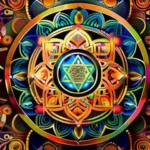 Understand the complexities and diversity of religious beliefs across cultures and time periods. Gain insights into the role of religion in shaping societies and its impact on human history.
Understand the complexities and diversity of religious beliefs across cultures and time periods. Gain insights into the role of religion in shaping societies and its impact on human history.

